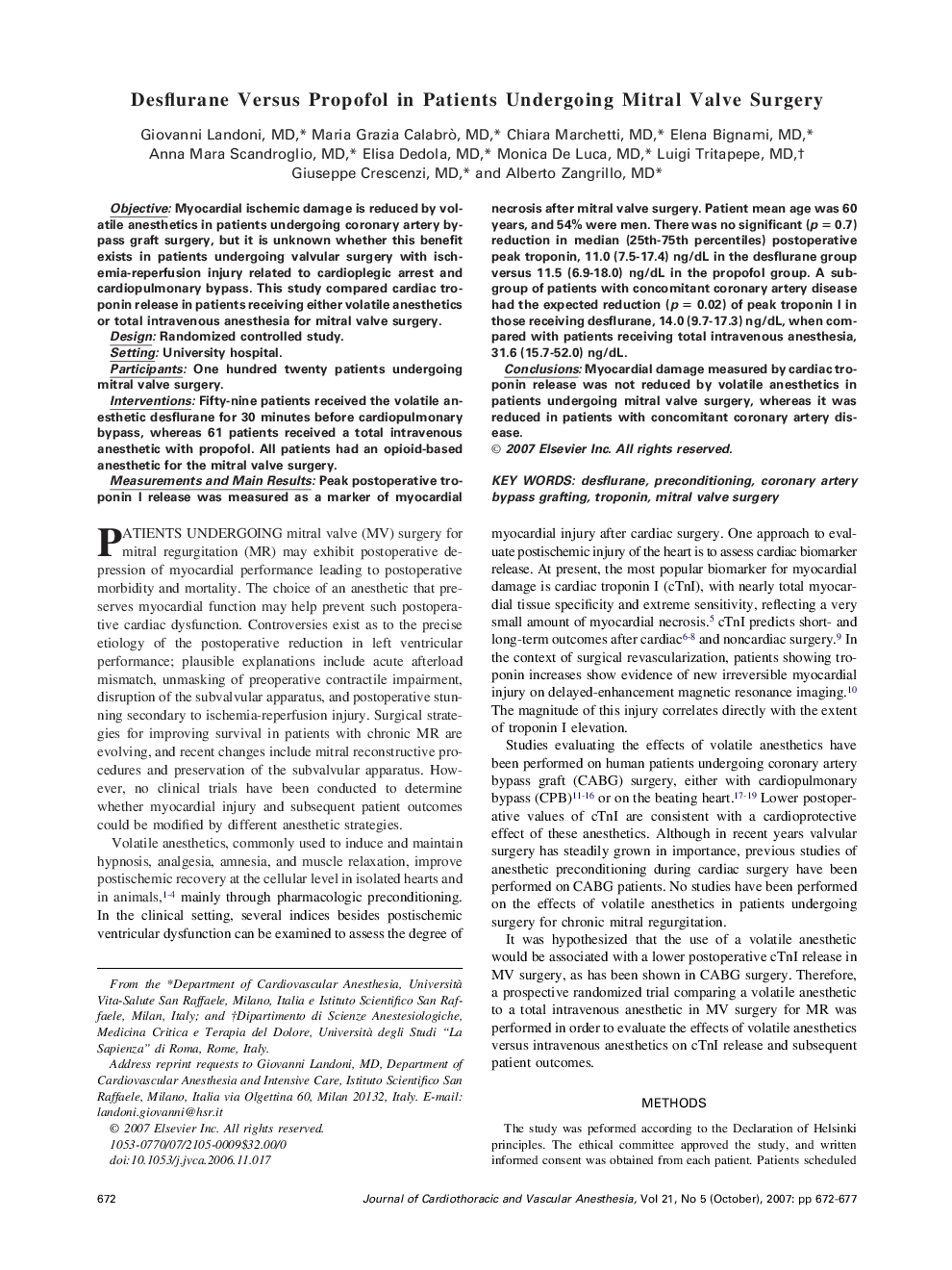| Article ID | Journal | Published Year | Pages | File Type |
|---|---|---|---|---|
| 2761020 | Journal of Cardiothoracic and Vascular Anesthesia | 2007 | 6 Pages |
Objective: Myocardial ischemic damage is reduced by volatile anesthetics in patients undergoing coronary artery bypass graft surgery, but it is unknown whether this benefit exists in patients undergoing valvular surgery with ischemia-reperfusion injury related to cardioplegic arrest and cardiopulmonary bypass. This study compared cardiac troponin release in patients receiving either volatile anesthetics or total intravenous anesthesia for mitral valve surgery.Design: Randomized controlled study.Setting: University hospital.Participants: One hundred twenty patients undergoing mitral valve surgery.Interventions: Fifty-nine patients received the volatile anesthetic desflurane for 30 minutes before cardiopulmonary bypass, whereas 61 patients received a total intravenous anesthetic with propofol. All patients had an opioid-based anesthetic for the mitral valve surgery.Measurements and Main Results: Peak postoperative troponin I release was measured as a marker of myocardial necrosis after mitral valve surgery. Patient mean age was 60 years, and 54% were men. There was no significant (p = 0.7) reduction in median (25th-75th percentiles) postoperative peak troponin, 11.0 (7.5-17.4) ng/dL in the desflurane group versus 11.5 (6.9-18.0) ng/dL in the propofol group. A subgroup of patients with concomitant coronary artery disease had the expected reduction (p = 0.02) of peak troponin I in those receiving desflurane, 14.0 (9.7-17.3) ng/dL, when compared with patients receiving total intravenous anesthesia, 31.6 (15.7-52.0) ng/dL.Conclusions: Myocardial damage measured by cardiac troponin release was not reduced by volatile anesthetics in patients undergoing mitral valve surgery, whereas it was reduced in patients with concomitant coronary artery disease.
